AudioCulture
The noisy library of New Zealand music
Te pātaka korihi o ngā puoro o Aotearoa
Jordan Reyne
aka Dr Kervorkian and the Suicide Machine
Reyne started her creative journey when she was a young child, hitting bits of metal together and writing songs on the farm she grew up on near Westport. She began performing in public over 30 years ago and has released 10 albums.
Jordan Reyne was born in England in 1974 and her family moved to New Zealand just months afterwards. The eldest of four children, she spent most of her childhood at Tauranga Bay, 10km southwest of Westport. The bay is a sparsely populated agricultural area, and in recent decades it has emerged as a tourist destination for the seal colony that lives there.
The rugged and dramatic surroundings had a significant impact on Reyne. “We lived on an isthmus, we had sea on three sides – so you just had the sound of booming surf all day and all night. It’s just so very isolated you feel completely annihilated by the extent of the geography. Mountains just push up and sink over millions of years and you realise how completely insignificant you are. We’re just here for a blink of the eye. It’s kind of like when you grow up in those areas you just kind of have this roaring of nature. I mean even if it’s not making noise, it feels loud, it’s overwhelming. You feel alone because of it. And there’s not many people around so you end up dealing with trees and plants and animals more than you do with humans.”
Reyne’s musicality emerged at a young age; she recounts being told by her mother that as a young child she didn’t sleep much and would wake the household up jumping around in her cot singing ‘Rupert the Bear’. “From then I always loved music.” She grew up with a lot of music in the family household. Recordings that appealed to her included those by Steeleye Span, Gordon Lightfoot, plus Jeff Wayne’s Musical Version of The War of the Worlds (1978). Her most fundamental influence as a youngster was Pink Floyd’s The Wall.
She had guitar lessons at a young age, mostly informal and without much theory, and notes her teachers as being some of the most important influences on her. “The first music teacher I remember having – and looking back he must have been quite a cool hippie character – [was] actually quite young, and enthused about music. And he taught me some chords on the guitar just so I could experiment and things. And it just carried on from there really. His name was Mr Birmingham. He was great.”
Reyne’s family moved to Waikanae when she was 11 and at the age of 12 her guitar teacher placed her in a band with other music students so they could practise a song and improve their technique. From then she carried on playing and developing her writing and singing, and at the age of 20, while also carrying on her solo work, she played in a prog/metal band called Bloodflower, who on one occasion played support for White Zombie. She thoroughly enjoyed her time with Bloodflower, commenting, “I got to play with some of my best friends who were also really brilliant musicians.”
As time passed the band dispersed, and Reyne, like many other musicians and artists, had her parents constantly trying to dissuade her from following music as a career path, and so she sought to combine the demands of mammon and her art.
In 1995, at the age of 21, she released her first single, ‘Long Way To Climb’ b/w ‘Wilt’.
After leaving secondary school she began her journey into tertiary education and went to the Central Institute of Technology in Wellington to study software engineering. “They were doing embedded systems programme language, and I found that really fascinating. I like problem solving. I was doing that for a while but wanted to focus on the music. And when you do software engineering it really fills your mind, it’s really engaging mentally and I was too exhausted to do music.”
In 1995, at the age of 21, she released her first single, ‘Long Way To Climb’ b/w ‘Wilt’, on Deepgrooves Entertainment, which eventuated after sending a demo to label head honcho Kane Massey. Produced by Anthony Ioasa, ‘Wilt’ remains an appealing tune with strong rhythms (drums by Wayne Bell), clever bass playing, a clanging yet beautiful guitar sound, and a vocal rippling with a deep critical energy. Two years later, in 1997, she released the ‘Millstones’ single, also on Deepgrooves, as well as her first album Birds Of Prey, with Chris Sinclair producing and Simon Holloway programming. That same year she recorded a song called ‘Transista’ with Breaks Co-Op.
In order to avoid being pigeonholed with a singer-songwriter label, in 2000 she went under a new monicker, Dr. Kevorkian And The Suicide Machine, and released two albums, The Ironman (DDV Laboratories, 2000) and The Loneliest Of Creatures (Mediatrix Publishing, 2002). The same year she also released a track called ‘Newex’ with Johnny Chrome, which featured on the Café Del Mar 25th Anniversary compilation album.
Reyne left New Zealand in 2003 with the intention of not returning and moved to the city of Karlsruhe in southwest Germany near the French-German border. But her stay ended up “going horribly wrong” and she ended up squatting and busking on the streets and “not sort of getting anywhere”. She learnt to speak German because she had to in this difficult period, and eventually came back to New Zealand.
Reyne had worked hard in trying to make the music work but was finding it difficult. In a reassessment of what she was doing she began a BA in philosophy and sociology at University of Auckland. In her philosophy course, she studied existentialism but also enjoyed phenomenology. “Mainly what they called the continental philosophy side of things, rather than the analytic stuff, which I did find interesting to some extent – but mainly questions of ‘being’ and ‘identity’.” She found reading Kant a “horrible” linguistic experience in both German and English, yet, pragmatically, notes his work as “sadly important, so you’ve got to muck through and read it.”
In between her studies she continued to play live and record, and in 2004 Jayrem released her fourth album Passenger. Reyne sees its core themes as being around the search for identity. The same year she sang on the Strawpeople song ‘Wire’, which was released on the Count Backwards From 10 album.
“I always loved the Strawpeople; Paul Casserly asked me if I wanted to sing on his album. I was living in the Avondale trailer park at the time. He gave me the music beforehand, he was really cool to work with. He just said ‘sing what you want, do your own melody, do your own lyrics’, which was good because I can’t sing other people’s lyrics, in my experience it just doesn’t resonate. So it was fantastic and an honour.”
In 2004 Reyne was an artist in residence as part of the Creative New Zealand and Department of Conservation “Wild Creations” programme. The work was carried out at Karamea on the West Coast, the most northern community of any size on the West Coast, around 110km north of where Reyne grew up. The project was exploring the tough life and times of incoming English settlers at the experimental settlement at Karamea in the 19th century, through the diaries of English immigrant Susannah Hawes and others who lived there.
“They’d done these incredibly, to me, miraculously brave things, and you realise that that is what life is about. This quiet struggle that we’re actually all together in but we don’t realise we’re together in it. We’re deliberately atomised so we don’t feel we are, like ‘everyman for himself’, and that is the dangerous contingent of it. I guess I try and unpick those things, like ‘what’s wrong with society?’ [laughs]. Big questions and they intrigue me.”
The project yielded a limited-edition book by Reyne, Remembering The Dead, and five years later an album was released, How The Dead Live. The album is multi-layered and presents an austere beauty of that wild landscape that the settlers tried to make their own but sometimes with tragic results. Visually it is reflected perfectly in the video made for ‘The Proximity of Death (Blue Eyed Boy)’ which sits on almost Arabic type guitar drones at points with tight military snare rolls played exquisitely by Nick Clarke.
Reyne has always been open to collaborations. Works were carried out with Baitercell and Schumacher, and in 2006 she featured on a mp3 digital single release by Rob Salmon, ‘Waiting For The Sun’ b/w ‘Jamaican Steel’. In the same year she left New Zealand to go to Germany again, spending time in Lübeck and later Hamburg in the North, but again ended up squatting and busking for about 12 months. However, she eventually got a part time job at a language training school. “I graduated from playing on the streets to playing crappy covers in bars and then got back to playing my own music.”
While working in Germany she carried on developing her German language skills and began playing live online. In 2010, she played over 200 live shows, with most on the internet. In 2011 more new material began to gather as two events came to bear at the same time: the death of Reyne’s grandmother, and the widespread fallout in Europe from the 2008 global financial crisis. “... and all because a certain class of people owns your labour,” she observes.
Reyne’s favourite album of her own work i2 the dark and moody Children Of A Factory Nation, released in 2011.
Against this background of tough times Reyne began researching her family tree. Her grandparents’ family originally came from Bleanavon, a Welsh mining town. The bleakness of their lives and the boom and bust cycles of the 19th century struck a chord with what Reyne was observing around her. “My partner at the time was a factory worker, and I’d hear all these tales from this factory from his buddies at the weekend when they were drinking beer, and I’d think Christ, this is the industrial revolution all over again.”
The material that had agglomerated became the narratives and music for Reyne’s favourite album of her own work, the dark and moody Children Of A Factory Nation, released in 2011. It came out to favourable reviews and Reyne moved to London from Hamburg the same year because of the interest the album had gathered. Paradoxically she found that once she lived in London that the Germans were suddenly more interested than when she was living there. She then started touring Europe, mainly in the UK, Germany and Poland, but later in Slovenia and Holland.
The following years were also a creatively fertile time and in 2013 Reyne released the beautiful ‘Song For Winter Solstice’ as a FLAC file single, as well as the brooding and excellent album The Annihilation Sequence on her own label Factory Nation. It sold well and for a period was the No.1 selling item on Bandcamp. She also contributed vocals to an album by The Eden House and in 2014 she began releasing a trilogy of CD EP releases with Mother, then Crone, and finally Maiden in 2015.
Reyne began performing in character of the Crone, which was an evolution of themes she had been working on. The resultant startling witch-like image was a strong and potent one yet not informed by investigations into pagan magic but more so the resonance of certain patterns of pagan-type drums. “I don’t know how true this is – but that was the background to ritual, but certainly the modern version of what it was back then often has that in it and I’ve been drawn to that musically.”
Despite her performances and releases selling and receiving critical acclaim, Reyne was suffering from scoliosis – a curvature of the spine –and becoming less enamoured with the rigours of touring as well as the tenuous existence that music can offer. She began to think about moving out of music for a new career path as living in London was expensive and becoming untenable. One day in 2016 she received an offer from an agent to record a vocal on a game soundtrack trailer. She was delighted when it became clear it was the Resident Evil VII theme song, ‘Go Tell Aunt Rhody’, which she performed at the game’s launch in Tokyo in early 2017. A few months later Powertool Records released The Best Of Jordan Reyne, a compilation album on both CD and lathe.
One of the great strengths of Reyne’s work is its truth-telling and innately critical and political component, on several differing levels. From gender constructs, to the misery and desperation of many people’s working lives, to the emotional dislocation and loss of identity implicit in modern life. As a student of colonial history in New Zealand she has key insights to that era and believes that anger as an emotion was socially repressed during that period, along with other emotions deemed “negative” in a situation that could be bleak and difficult. And that this form of repression has helped create a “toxic” culture in New Zealand – and now in the 21st century, deep social problems have become manifest.
Like many people concerned with the current state of the world she is angry at the widespread poverty and growing inequality post the 2008 bust and governments’ collective refusal to seriously address the latter, as well as deepening global ecological problems. She is especially scathing at what she sees as governmental manoeuvring to keep people’s attention held in an effective Panem et circensis [bread and circuses] daze, commenting: “No one seems to have learnt anything from Nazi Germany except what tricks to play on the populace.”
Reyne has now effectively retired from working fulltime in the music business and devotes herself to her new career in writing, designing, and programming her own texts for video game developer Choice of Games. In September 2017, she released her first text-based game, Choice of the Cat, a 600,000-word interactive novel. In a recent interview, she discusses her involvement in music: “The industry itself is very toxic and values a lot of unhealthy things, whilst simultaneously not valuing musicians. I was lucky to have some very supportive and awesome listeners. I will still write music for them, and occasionally do gigs for them too. In the end though, I’m happy that I can switch to straight-out narrative as full-time work.”
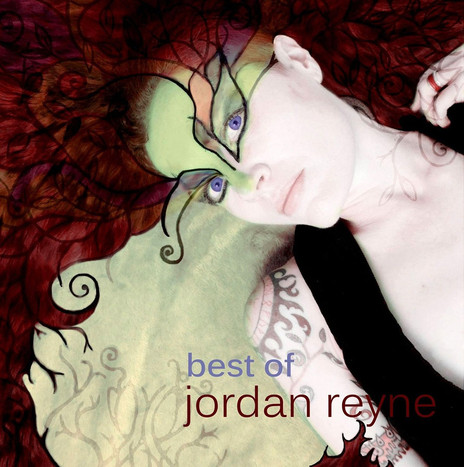
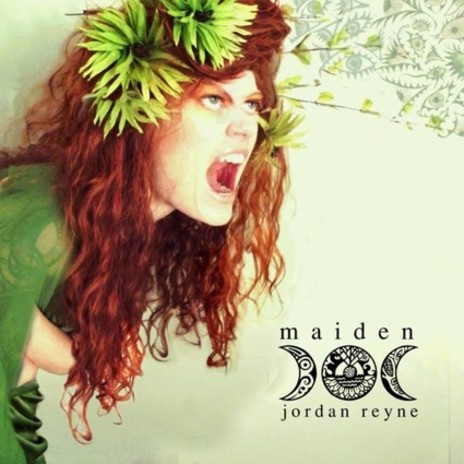
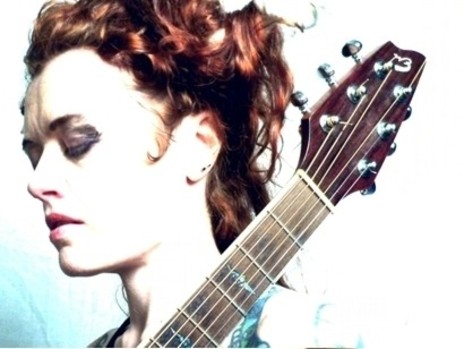
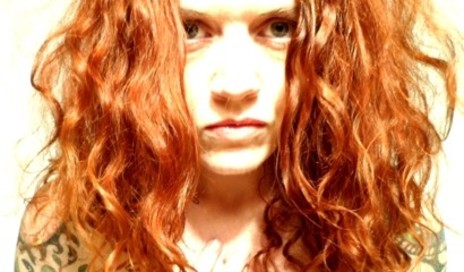
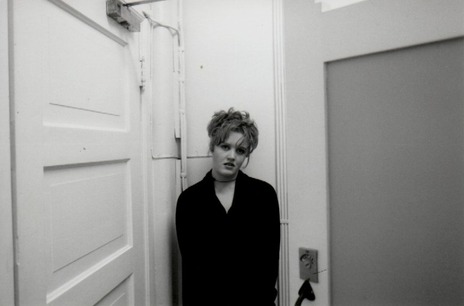
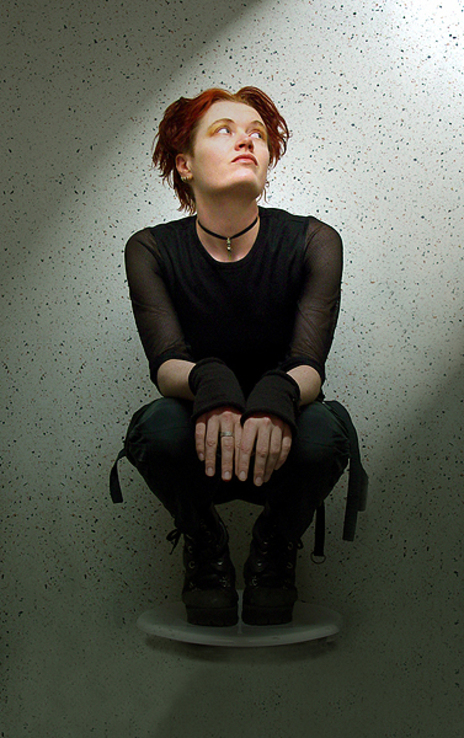
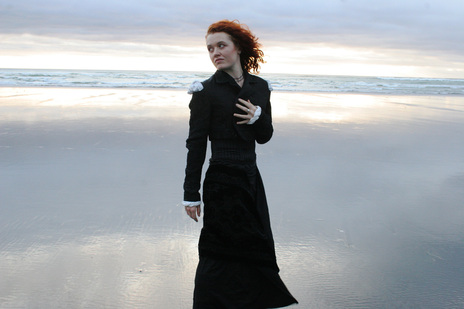
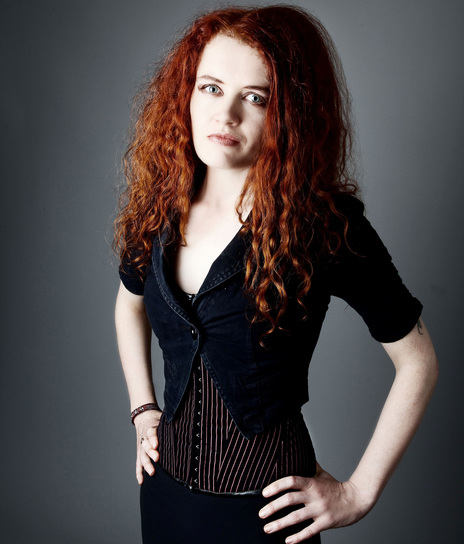
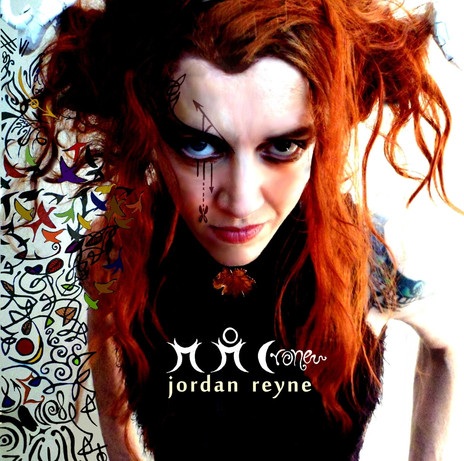
Visit our sister site
NZ On ScreenMade with funding from
NZ On Air




